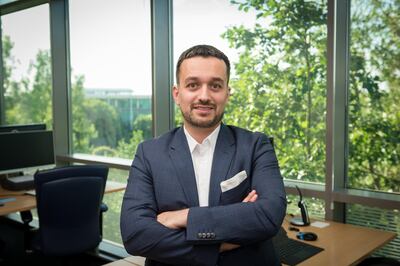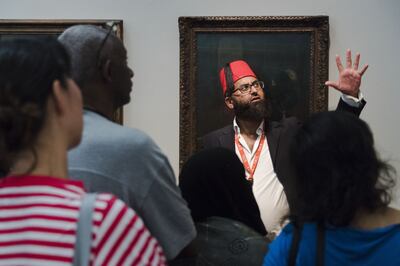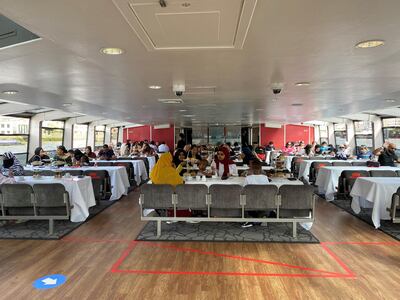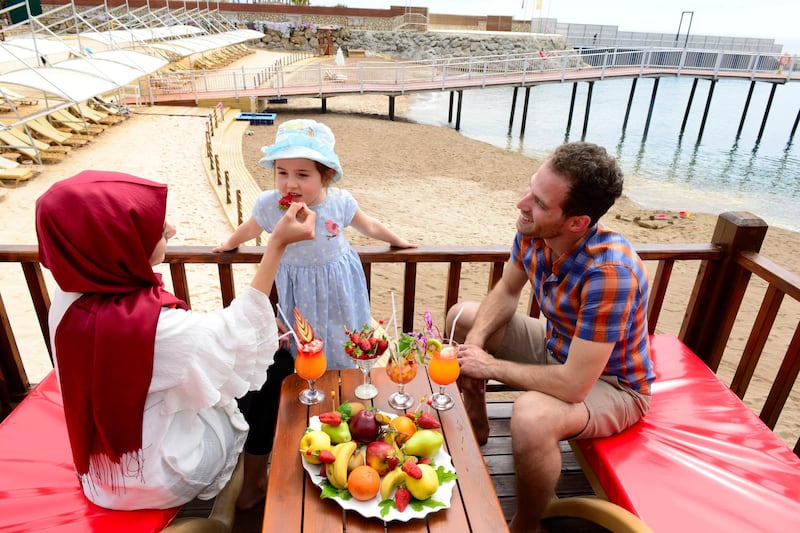After being devastated by the coronavirus pandemic, the halal tourism industry is starting to see signs of recovery – and is looking to reboot itself using technology.
One of the fastest-growing sectors of tourism, halal tourism is geared towards Muslim families who abide by the rules of Islam. Before the pandemic, UK-based HalalBooking.com was the fastest-growing travel and leisure company in Britain and the eighth-fastest in the European tourism sector.
But Ufuk Secgin, the site's chief marketing officer, told The National that from April to June it was tough for the entire industry. Hotels were closed and sales ground to a halt, while refunds for cancelled and postponed trips had to be honoured.
Mr Secgin is optimistic, however, that the company’s technology, market knowledge, customer base, network of affiliates and accommodation portfolio will make it well placed to survive the crisis.
Although sales have been hit badly by Covid-19, HalalBooking.com recorded some recovery in July, with demand at about 60 per cent of that in the same month last year. Mr Secgin said sales for August are already up 5 per cent from last year’s figure for the same month.

Plenty of obstacles remain, however. Many Muslim-majority countries, such as Morocco and the Maldives, also remain closed to international tourists.
With cleanliness another concern during the pandemic, HalalBooking hotels have been awarded safe tourism certificates and will undergo monthly inspections to ensure they comply with more than 100 hygiene measures. The company also recently announced a partnership with the holiday booking website Expedia, enabling it to offer stays at many more hotels and villas than previously.
Rise in domestic tourism
“This partnership is particularly important at the moment because, due to the coronavirus pandemic, we can see that some customer behaviour is changing, and in 2020 many customers are choosing to holiday in their home country,” Mr Secgin said.
Previously, only a small proportion of HalalBooking’s accommodation was in the UK, Germany or France, where most of its clients live.
Through the deal with Expedia it has increased its supply in the Scottish Highlands; Cornwall, south-west England; the French Riviera and Lake Constance in the Alps.
It has also increased its focus on the GCC countries, which he believes will fuel growth in the region in the future.
The messaging around rebooting tourism amid a pandemic is crucial and Mr Secgin has recently been visiting halal-friendly resort hotels in Turkey to share information with customers.
Attracting GCC tourists
In the UK, Halal Tourism Britain has been hit badly by the pandemic. The travel company, led by tour guide AbdulMaalik Tailor, provides Muslim heritage tours in Britain along with river cruises to mark religious holidays such as Eid Al Fitr. Naturally, all the food offered on these tours is halal.
Mr Tailor told The National the British government could do more to sell itself as a destination to Muslim tourists amid Covid-19.

Mr Tailor is looking to bring more Emirati customers to Britain.
“The Gulf countries are seen as high spenders in this industry. That’s quite attractive to everybody and there needs to be better promotion in terms of the safety measures in place in the UK.
“The government could help make a tourism video that is targeted at a Middle Eastern audience to say: ‘These are our safety measures that we have in place’ because I’ve seen it the other way around, in the UAE, the videos they’ve made.”
He said it would be helpful if the British government could follow the UAE’s example and promote the UK as a safe destination.
Mr Tailor said religious guidance had made halal holidaymakers more cautious than other tourists.
“In the narrations of the Prophet Mohammed, it actually tells us if there’s a disease or plague somewhere, we should remain in our own cities and we should not be venturing out. And that someone from another city should not be coming to visit us as well. From a religious point of view, some people have adhered to that during this pandemic.”
Cancelled cruises
Mr Tailor intended to host five themed Islamic cruises this summer but has had to cancel at least three. He held an Eid cruise last month, and is planning to hold a pre-Ramadan brunch, which has been pushed back from the spring until the end of August.
Despite seeing “more or less a standstill” on all bookings from March to June, there has been more demand for domestic bookings since measures have eased.
“The Eid cruise on the Thames brought some customers back in but it was just domestic customers. I think people wanted just to get out there and that they had been too much in lockdown.”
Although they managed to hold the event successfully while adhering to social distancing rules, Mr Tailor said it would still be some time before bookings returned to pre-pandemic levels.
“We used to do cruises every day but now that has been shortened to only on Thursdays, Fridays, Saturdays and Sundays,” he said.
His wider halal tours in Britain have also been badly hit by the pandemic.

“We did have a new tour that we put together and tried to promote it, but nobody as of yet has booked it. But it’s like the rest of our tours: nobody’s booked. We’ve not had any bookings whatsoever in terms of the walking tours.”
“We did try doing some online tours as well. We did initially start charging people but we realised that not many people would book that up. We focused the tours online, to keep the momentum going.”
Mr Tailor said that he wants his company to diversify and partner with other suppliers as well as “lay on different” experiences to help it navigate the pandemic.
“We already have a Muslim heritage tour of the British Museum and that’s one we know there’s a lot of interest for.”







